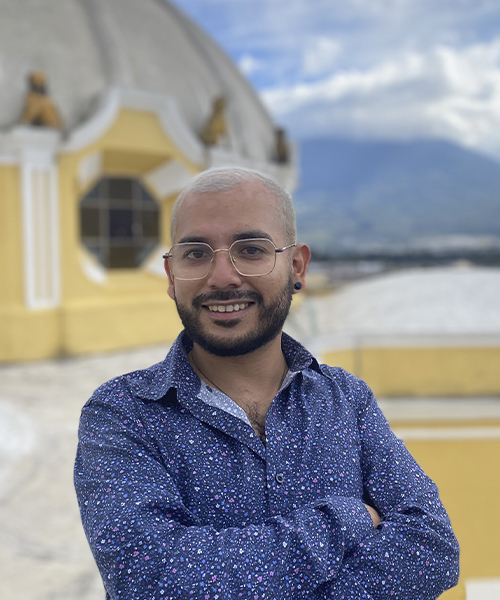Equally impactful was a speaker who addressed mental health through the lens of Ignatian spirituality. I wasn’t expecting to feel so grounded by that conversation, but it reminded me that care for the whole person is not just a Jesuit principle, it’s something we can embody daily. That session helped me reconnect with the Jesuit values I’d grown up around but hadn’t consciously integrated into my adult or professional life.
It was also a privilege to represent my university during the fellowship, especially as part of a panel discussion. Sharing insights from my take on Gen AI enablement created space for others to come forward with their institutional experiences. The result was a rich exchange of strategies, concerns, and hopes for how Jesuit institutions might approach AI thoughtfully.
There were also smaller moments that brought the global dimension of the fellowship to life, like joining a Latin American discussion group and instantly feeling at home, or later, sitting with peers from across regions and realizing how much we all wrestle with similar challenges, just framed through different cultural or systemic lenses. These exchanges reminded me that global citizenship isn’t about agreement, it’s about mutual recognition and collective responsibility.
One of the most personally transformative moments was participating in the In Your Shoes workshop hosted by the Berkley Center. It introduced us to a dialogue model rooted in deep listening and empathy, and it left a lasting impression on me. I realized how powerful it is to create space not just for voices, but for understanding. That experience sparked a real desire to learn more about dialogic methods that help us move from speaking to truly hearing one another.
Throughout the fellowship, I stayed closely connected to the theme of AI. Coming from a corporate learning and development background, I had always approached AI from a practical, results-driven standpoint, focused on enablement, metrics, and adoption. But the IAJU Assembly challenged me to pause and consider broader, deeper questions: How do we integrate AI into education in a way that aligns with formation, discernment, and human dignity? What does responsible use of AI look like in a Jesuit context?
One of the biggest shifts in my thinking came from discussions around long-term planning. Suppose students are going to use generative AI tools. In that case, our educational frameworks need to evolve accordingly, not only to permit usage but to raise expectations, deepen critical thinking, and uphold academic integrity. We shouldn’t fear these tools, but we also shouldn’t implement them without care.
As both an AI enthusiast and global citizen, I now see an important role in helping different generations understand the potential of these technologies in the service of better learning and deeper human connection. I’ve become increasingly interested in the idea of a Jesuit-aligned generative AI assistant, one that could support administrative, research, and pedagogical goals not just through automation, but through values like transparency, discernment, and cura personalis. While I’m not building such a tool myself, the possibility of something like this reflects the kind of ethical, mission-driven governance I hope to see take root in higher education.
This fellowship helped me reconnect with values I had taken for granted, expand my understanding of AI’s role in learning, and deepen my commitment to inclusive dialogue. I leave this experience more hopeful and more prepared to help bridge the gap between innovation and intention.

